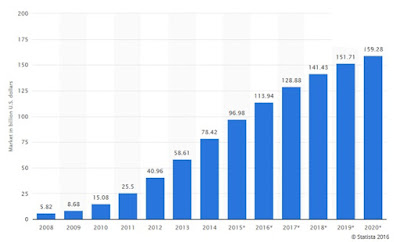Twitter Feed
Enomaly: Startup of the Week
Congratulations to Enomaly and Reuven Cohen for being named Startup of the Week byInformationWeek !!! Reuven and I collaborate quite a bit and his blog, Elastic Vapor, is a staple for anyone interested in…
Cloud Computing at DoD, DISA, DIA, CENTCOM and NCOIC
At CloudCamp last week, Military Information Technology distributed free copies of it’s November issue to all attendees. The issue contains a very informative article by Cheryl Gerber titled “Computing in…
Last Night’s Camp Out !!
Check out Tech BISNOW for more on CloudCamp Federal! Follow me at https://Twitter.com/Kevin_Jackson
CloudCamp Federal was AWESOME !!
Just got home from CloudCamp Federal. What an event!! The over 100 attendees definitely made the statement that the Fed is interested in cloud computing. As expected, cloud security was…
DISA taps CollabNet to manage DoD cloud software development
This week, the Defense information Systems Agency (DISA) announced that they will be using Collabnet tools to manage application development for RACE. The Computerworld article said that DISA will use…
Today is CloudCamp Federal !!
Today we kick of off the first CloudCamp Federal. Reuven Cohen, Bob Lozano, Brand Niemann and over 150 other cloud computing enthusiast are expected to attend. We also plan to…
CloudCamp “Sold Out” !! More Tickets Added
We are happy to announce that CloudCamp Federal (aka DC), taking place tomorrow at Apptis headquarters in Chantilly, VA (directions), is sold out. But don’t fret, we’ve added 25 more…
Only 9 tickets left for CloudCamp Federal !!
Only 9 tickets left from the original allotment of 150 for CloudCamp Federal this week. We’re working to free up some more, but don’t leave it to chance. Go to…
Valiant Angel – A Perfect PED Application for Cloud Computing
A few weeks ago in an article title “Why the Cloud? Processing, Exploitation and Dissemination“, I described two instances where the newspaper industry used cloud computing in order to process,…
- Enable cloud service arbitrage based on cost, performance or operational need;
- Help companies migrate operations to the cloud and assist with staff augmentation and training;
- Provide cloud service auditing and SLA monitoring services;
- Help in focusing and managing organizational cloud service demand;
- Provided toolsets to assist in the migration and integration of enterprise applications; and
- Help in change management and the selection and integration of other managed services.
By automating and operationalizing the governance of cloud services, CSBs can efficiently multi-source services and augment them with third party metering and monitoring. Using CSBs, organizations also accelerate their transition to hybrid IT models. This marketplace is typically segmented type of services: cloud brokerage and cloud brokerage enablement, wherein cloud brokerage enablement is further segmented into internal and external brokers. When used internally, cloud enablement platforms helps enterprises adopt the new hybrid IT and multi-sourced operating model. By building organic expertise, companies can personalize IT service consumption and unify
IT service delivery through the use of a corporate self-service store, a dynamic service marketplace, and continuous delivery. This centralized, supply chain approach unifies the order, execution, and management of multi-sourced solutions across legacy and cloud resources, by centrally delegating and tracking execution.
(This post was brought to you by IBM Global Technology Services. For more content like this, visit Point B and Beyond.)
( Thank you. If you enjoyed this article, get free updates by email or RSS – © Copyright Kevin L. Jackson 2016)
Cloud Computing
- CPUcoin Expands CPU/GPU Power Sharing with Cudo Ventures Enterprise Network Partnership
- CPUcoin Expands CPU/GPU Power Sharing with Cudo Ventures Enterprise Network Partnership
- Route1 Announces Q2 2019 Financial Results
- CPUcoin Expands CPU/GPU Power Sharing with Cudo Ventures Enterprise Network Partnership
- ChannelAdvisor to Present at the D.A. Davidson 18th Annual Technology Conference
Cybersecurity
- Route1 Announces Q2 2019 Financial Results
- FIRST US BANCSHARES, INC. DECLARES CASH DIVIDEND
- Business Continuity Management Planning Solution Market is Expected to Grow ~ US$ 1.6 Bn by the end of 2029 - PMR
- Atos delivers Quantum-Learning-as-a-Service to Xofia to enable artificial intelligence solutions
- New Ares IoT Botnet discovered on Android OS based Set-Top Boxes



